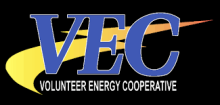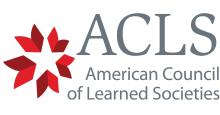Chattanooga is once again using their municipally owned network to improve the quality of life and save money at the same time. New LED street lamps have been installed all over the City and the anticipated energy savings are expected to be significant. In addition to the obvious, saving money with more efficient LED lights, the City anticipates cutting costs in other ways associated with the change. From a recent Mary Jane Credeur Bloomberg Businessweek article:
Almost a third of Chattanooga’s annual energy bill comes from old high-pressure sodium streetlamps. At any given time 5 percent of the bulbs are burned out, and they sometimes go on during the day, needlessly adding to electric bills. “You’ve got a certain amount of lights out but you have no idea where they are, so workers literally drive around in a truck looking for them, and it’s a real waste,” says David Crockett, director of the city’s office of sustainability.
The change to LEDs is expected to cut energy use by 70%. City officials, however, have taken it one step farther and have installed a whole new system that will drive those savings up to 85%, or approximately $2.7 million. Global Green Lighting, a local company, developed a sophisticated lighting system using a wireless network that is fed by EPB Fiber. The system provides the ability to control each light's output 24/7 to tailor the level of light specifically to each lamp, the environment, the time of day, and even what might be happening on the ground. When a light is not working, it can self-diagnose and send a message to maintenance describing what is broken and what is required to fix it. There is no need for manual meter readers because energy usage reports back to the electric company via the network.
The community sees enhanced public safety from the new lighting. Prior to the install of the new system, Chattanooga had frequent criminal activity in several parks at night. Also from the Credeur article:
Global Green is working on a flash strobe mechanism so the lights can also serve as a warning system for tornadoes or security threats or help guide ambulances and fire trucks to a particular address. Cops can also control the brightness when they’re chasing a suspect in parks, alleys, or other areas with dimmed lights. “A policeman can sit in his car and double the intensity or turn the lights off if there was a need to cover a SWAT team,” Crockett says.
Global Green Lighting plans to open a manufacturing facility near Chattanooga, creating 250 jobs assembling lights for the city. Global Green also expects to hire 1,000 people to install and maintain the equipment.
At Community Broadband Networks, we have covered Chattanooga's success story extensively, including highlighting it in our recent report, "Broadband At the Speed of Light: How Three Communities Built Next-Generation Networks." In the report, we also highlight the economic benefits of the EPB Fiber network and the smart grid that depends on it. The smart grid is credited with preventing 2.4 million customer minutes of interrupted service and estimated savings from reduced outages is $300 million over the first 10 years.
See the lighting in action in this police demo and learn more about the project from a local media video:







